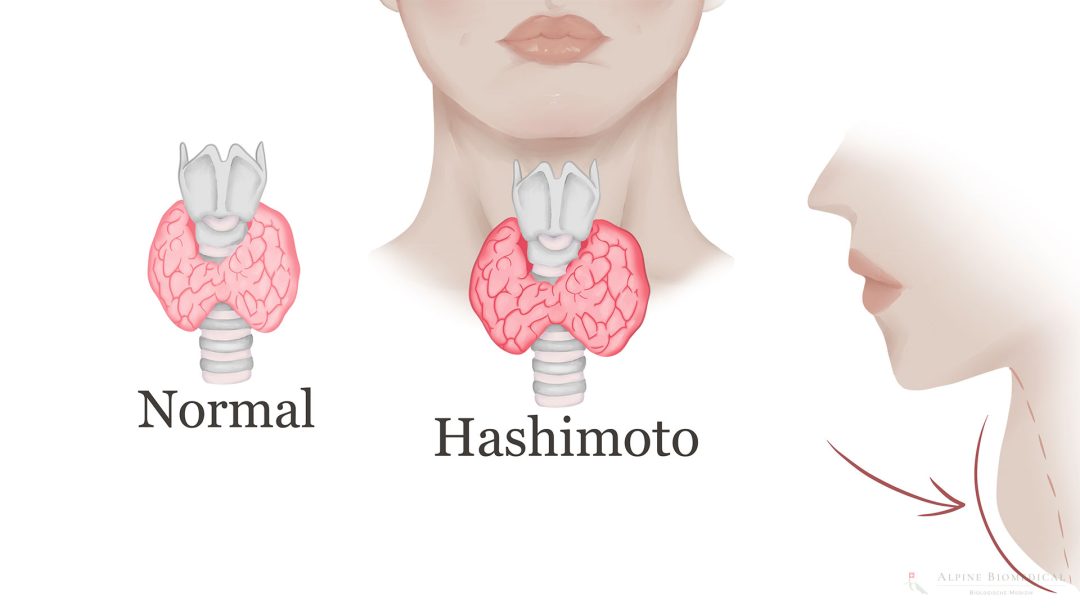Hashimoto's Thyroiditis

Hashimoto’s thyroiditis is an autoimmune disease in which the immune system attacks the thyroid gland and leads to chronic inflammation. As the disease progresses, it usually leads to hypothyroidism. Symptoms can include an enlarged thyroid gland (goiter), fatigue, weight gain, hair loss, feeling cold and depression. Women are more frequently affected by Hashimoto’s thyroiditis than men.
Hashimoto's Causes
The exact causes of Hashimoto’s thyroiditis are complex and varied. The following causes are discussed:
- Genetic predisposition
- Food intolerances
- Toxic exposure to environmental toxins, with heavy metals such as mercury and lead in particular being considered as possible triggers.
- Infections, e.g. EBV
- Micronutrient deficiencies, such as selenium
- Pronounced stress
- Hormonal imbalances
- Imbalance in the intestinal flora and leaky gut
Diagnostics and Therapy
Diagnosis is based on a careful medical history, physical examination, blood tests and, if necessary, imaging procedures such as ultrasound.
Conventional therapy for Hashimoto’s aims to stabilize thyroid function and thus alleviate the symptoms. This is achieved by taking artificial thyroid hormone preparations to compensate for the hormonal imbalance. L-thyroxine (levothyroxine) is used as the active ingredient, with the dosage being precisely adjusted based on the thyroid values.
An integrative approach, which includes a healthy lifestyle, avoiding food intolerances, a micronutrient-rich diet, effective stress management and sufficient exercise, can also help to improve symptoms. A balanced supply of vitamin D and other essential vitamins and minerals such as selenium and magnesium is crucial to prevent deficiencies that can contribute to the development and progression of the disease. Particular attention should be paid to the anti-inflammatory omega-3 fatty acids, which can be looked at holistically by an orthomolecular specialist.
Intestinal health plays a crucial role, as an imbalance in the intestinal flora can promote autoimmune diseases. Leaky gut syndrome in particular should be mentioned here.
Regular medical check-ups are important to monitor thyroid function and adjust the optimal dose of medication. Early diagnosis and appropriate treatment are crucial to minimize long-term complications.
Dr. med. Karsten Ostermann M.A.
Naturopathic, integrative measures can supplement conventional therapy for Hashimoto's thyroiditis and provide valuable support.

Further information
The information listed contains relevant topics and serves to improve understanding.